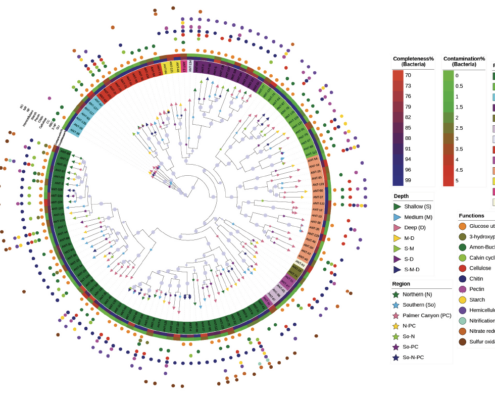
Looking Forward: The Race to Save Antarctic Penguins
The penguin populations in Antarctica are rapidly changing due to the effects of climate change. Over the past 30 years, scientists have studied the penguins around Palmer Station along the West Antarctic Peninsula, and have observed a significant…

Joy Ferenbaugh appointed Assistant Professor
Congratulations to Joy Ferenbaugh, who was recently appointed as an Assistant Professor of Biology at Adams State University in Colorado.
Joy was previously a PAL post-doctoral scholar, working in Scott Doney's Computational Biogeochemistry…

Upside Down Ocean: Unraveling the Crisis of Antarctic Sea Ice
Climate change is having a dramatic effect on Antarctic sea ice. For years, ice around the continent seemed oddly consistent, while sea ice in the Arctic has declined dramatically. But that is no longer the case. Over the last few years,…
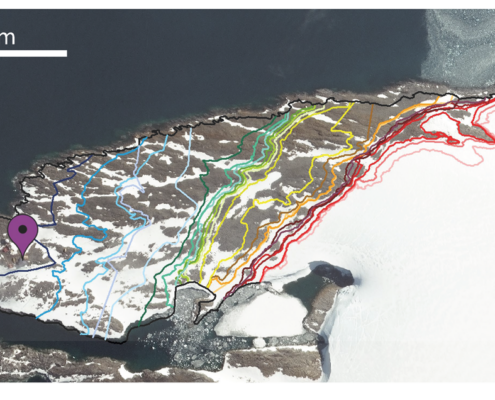
New Paper: 60 years of glacial retreat behind Palmer Station
In a new short paper, Megan Cimino, Marissa Goerke, and Shavonna Bent document how the Marr Glacier behind Palmer Station has retreated over the past 60 years. They found that the glacier has retreated about 7.7 meters per year, which…
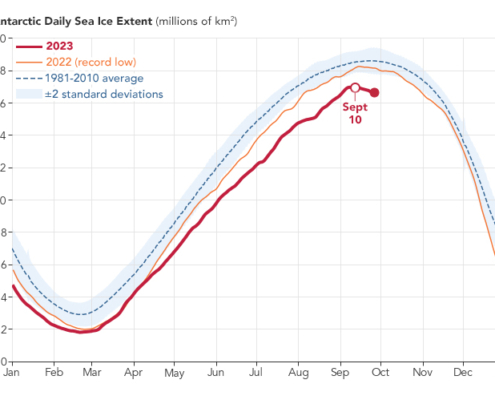
Fast Company on the Five-Sigma Event
Earlier this summer (for those of us in the northern hemisphere), as Antarctica reached it's peak winter season, scientists observed what came to be known as a "five-sigma event" in Antarctic Sea Ice. This referred to the unprecedented…
 AP Photo/Patrick Semansky
AP Photo/Patrick SemanskyAssociated Press: Antarctic Krill Fishing
This month, PAL LTER scientists Deborah Steinberg, Logan Pallin, Ari Friedlaender, and Joe Cope were featured in a story by the Associated Press.
Factory fishing in Antarctica for krill targets the cornerstone of a fragile ecosystemBy Joshua…
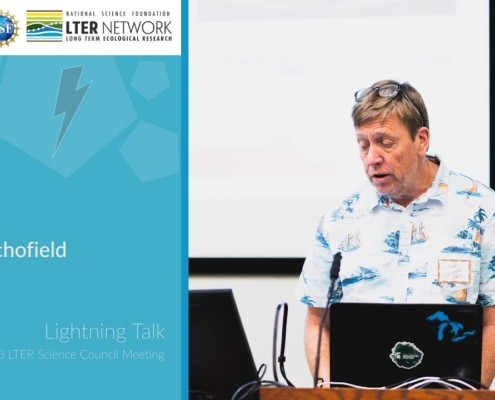
Lightning Talk on Palmer LTER Science
PAL PI Dr. Oscar Schofield recently gave a lightning talk on the current status of the Palmer Station LTER at the 2023 LTER Science Council Meeting. Check it out below.
https://www.youtube.com/watch?v=3OyvCll7HDY&list=PL48B_zTeq86…
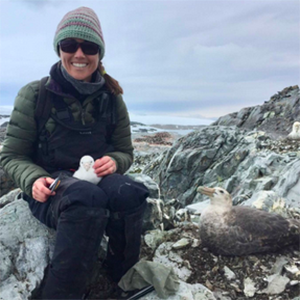
Palmer penguins featured on WHYY’s The Pulse
In April, the podcast series The Pulse from WHYY in Philadelphia featured an episode about Taking the Temperature of Climate Science. One segment featured our own Megan Cimino and her work studying the Adélie penguin population around Palmer…

New Paper: Remote sensing of sea surface glacial meltwater on the Antarctic Peninsula shelf
As the glaciers in Antarctica and especially along the West Antarctic Peninsula melt, it is important to understand where the meltwater is going, and how it will affect the oceanic ecosystem. In the latest issue of Frontiers in Marine Science,…
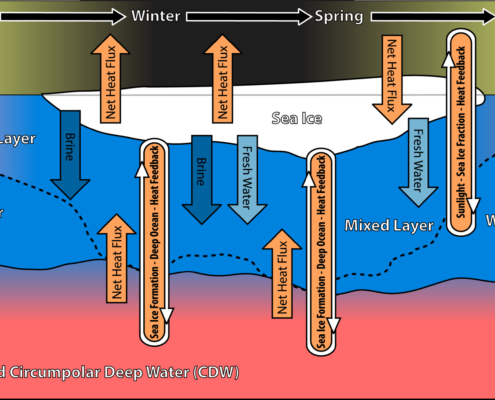
New Paper: Influence of seasonally varying sea-ice concentration and subsurface ocean heat
Do you love 1-D ocean-sea ice models? Then check out the latest paper by Ben, Darren, Scott, Doug and Sharon. Kudos to the team!
For more, check out the abstract and citation below.
Processes driving changes in sea-ice seasonality and…

New Paper: Krill body size drives particulate organic carbon export in West Antarctica
This week's issue of Nature includes a new article from PAL LTER team members Rebecca Trinh, Hugh Ducklow, Debbie Steinberg, and Bill Fraser. Congratulations to the team!
For more, check out the abstract and citation below.
The export…

New Paper: Depth drives the distribution of microbial ecological functions in the coastal western Antarctic Peninsula
Congrats to Avishek Dutta and the team for their recent paper in Frontiers in Microbiology. Here's the abstract...
The Antarctic marine environment is a dynamic ecosystem where microorganisms play an important role in key biogeochemical…
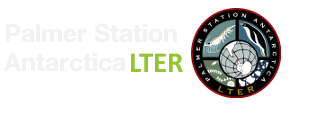

 This site was developed with the support of the National Science Foundation under Grant No. OPP-2224611 and OPP-2026045. Any opinions, findings, and conclusions or recommendations expressed in this material are those of the authors and do not necessarily reflect the views of the National Science Foundation.
This site was developed with the support of the National Science Foundation under Grant No. OPP-2224611 and OPP-2026045. Any opinions, findings, and conclusions or recommendations expressed in this material are those of the authors and do not necessarily reflect the views of the National Science Foundation.